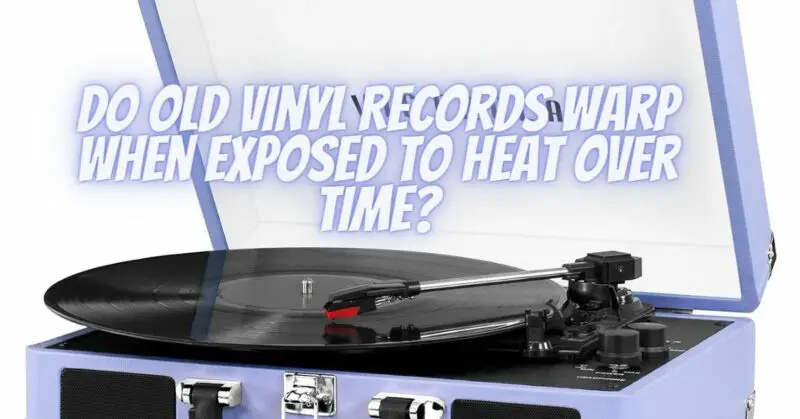Vinyl records, with their warm analog sound and iconic album covers, hold a special place in the hearts of music enthusiasts and collectors. However, vinyl records are not impervious to environmental factors, and one of the concerns that often arises is whether old vinyl records can warp when exposed to heat over time. In this article, we will explore the science behind vinyl record warping and offer tips on how to protect your cherished vinyl collection.
Understanding Vinyl Record Composition
To understand why vinyl records can warp, it’s important to know their composition. Vinyl records are made from PVC (polyvinyl chloride), a type of plastic. The grooves on the record contain the audio information in the form of analog waves. Vinyl records are typically flat and rigid, but they can become susceptible to warping under certain conditions.
Why Heat Causes Warping
Heat, especially when combined with other factors, can cause vinyl records to warp. Here’s how it happens:
- Softening of the Vinyl: When exposed to high temperatures, vinyl records can soften and become pliable. This softening can make the record susceptible to deformation.
- Uneven Cooling: If a vinyl record is exposed to heat and then cools down unevenly, it can warp. For example, if one part of the record cools faster than another, it can lead to a permanent bend or distortion.
- Weight Pressure: Vinyl records are often stored vertically under the weight of other records. When subjected to heat, the softened record can begin to sag under this pressure, causing warping.
- Direct Sunlight: Sunlight, in addition to heat, can accelerate the warping process. Ultraviolet (UV) rays from the sun can break down the PVC material, making it more prone to warping.
Preventing Vinyl Record Warping
To protect your vinyl records from warping due to heat exposure, consider the following preventive measures:
- Proper Storage: Store your vinyl records vertically in a cool, dry place away from direct sunlight and heat sources like radiators, heaters, or stoves.
- Use Record Sleeves: Keep your vinyl records in protective inner and outer sleeves to reduce exposure to dust and humidity, which can also contribute to warping.
- Avoid Overcrowding: Do not stack too many records on top of each other, as the weight can lead to warping over time.
- Maintain a Stable Environment: Maintain a consistent room temperature and humidity level in your storage area. Fluctuations in temperature and humidity can increase the risk of warping.
- Handle with Care: When handling records, always touch the edges and avoid placing your fingers on the grooves to prevent oils and dirt from transferring onto the surface.
Conclusion
While old vinyl records can indeed warp when exposed to heat over time, careful storage and handling can significantly reduce the risk. Vinyl records are durable, and with proper care, your collection can provide years of enjoyable music listening. So, keep your vinyl records away from extreme heat, maintain a stable storage environment, and continue to enjoy the warm, analog sound that vinyl records offer.


